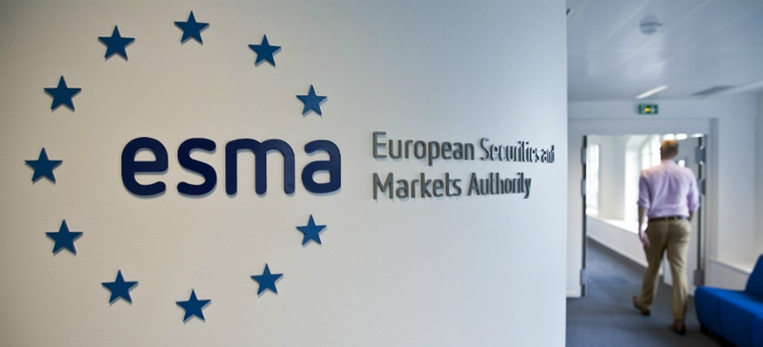A look at brokerage standards in Europe

The online Forex market is truly vast. With over $5.1 trillion changing hands every single day, it makes the combined turnover of equities and commodities look like pocket change.
And while this certainly translates to excellent opportunities for traders in the know, it isn't without its own distinct drawbacks. In today's increasingly saturated marketplace, it can often be hard to see the wood for the trees. There are just so many different brokers to choose from that it's nigh-on impossible to separate the straight shooters from the cowboys.
The truth is you never know whether a given broker or platform is really right for you until you try it out for yourself. But before you give them a chance, you must first ensure that they are fully above board.
And how do I do that, I hear you ask. Well, a good place to start is checking that they are properly regulated by a reputable body such as CySEC or the FCA. After all, there are plenty of banana republic jurisdictions where unscrupulous brokers can get away with all sorts of scams. When it comes to trader protection, Europe truly is the gold standard. That's why you should always go for an EU-domiciled outfit, all other things being equal.
Regulatory developments: MiFID II and ESMA
As online trading has grown in popularity over the past 5 years or so, there has been a concerted effort by regulators to crack down on the quasi-legal practices employed by some brokers to coax unsuspecting retail traders into risking money they can't afford to lose. As any seasoned trader will know, the two major lures used historically have been bonuses and extreme leverage facilities, both of which have been curbed by recent regulatory revisions.
The first major development is the Markets in Financial Instruments Directive II (or MiFID II for short). This revolutionary piece of legislation was introduced to respond to the concerns raised by the 2008 global financial meltdown. After much anticipation, it finally came into effect in 2018 and Europe-based brokerages have been scrambling to comply with it ever since.
In terms of palpable changes to the way FX trading is conducted, perhaps the biggest is the removal of traditional promotional tools like welcome bonuses and rewards for referring friends. Traders had become accustomed to receiving these little sweeteners and many brokers relied on them for getting new customers through the door.
Another massive impact of the directive - and one which was further stratified in the latest batch of ESMA product restrictions - has been the limit to the maximum amount of leverage Forex brokers can offer their clients. Under the new rules, retail clients are limited to no more than 30:1 leverage on major currency pairs and 20:1 on non-majors. This is a significant step down from the outlandish minimum margin requirements available in the past.
As a result, we have seen a large portion of smaller, less-competitive brokerages leave Europe for more "liberal" shores. Meanwhile, the ones that remain are now looking to compete on other things like proprietary technology and social trading services - to the benefit of ordinary traders.
The CySEC difference
Out of all of Europe's individual country regulators, CySEC has been the most forward-thinking in its approach to managing leveraged trading. It is a regulatory body that is synonymous with trust and fair play. Already one of the EU's premier regulators, the Cypriot commission's standing can only rise once the UK leaves the Union, taking the FCA with it.
Despite meeting with criticism in the past for being slow to react and lax with its penalties for non-compliance, CySEC has given itself a complete overhaul in recent years, introducing more stringent fines and taking a proactive approach to ensure regulation is adhered to. It may not be quite as mature as the FCA or CFTC, but its book of registered brokerages has been the fastest growing of the lot for nearly a decade.
Why Libertex?
Libertex is one of the few FX brokers that decided to tough it out in the new regulatory climate. Instead of packing up its operation and moving to the Caribbean, Libertex chose the harder option of making itself more competitive by developing value added services that actually benefit clients.
Despite having reporting systems and non-real time monitoring practices that were more than standard for the market - along with excellent client order execution statistics and an enviable customer satisfaction score - Libertex still thought it could do more to improve its client experience.
Following a visit from European regulator CySEC, the company was inspired to strive for more and began work to develop and implement a new proprietary best execution monitoring system. Unlike anything seen on the market until now, it provides truly real-time monitoring and comparison of all execution metrics to a large number of market participants and trade repositories.
Never satisfied with par for the course, Libertex is committed to adhering to the highest Corporate, Compliance, and Ethical standards and, in the year and a half since the CySEC visit, we have greatly expanded our Compliance team and improved our procedures, working closely with the regulator to ensure the highest standards of compliance and the best service for our clients.
Libertex is proud to offer the most cutting-edge trading platform according to the strongest ethical standards. Our clients and partners can be assured that they will always be able to trade safely with us and enjoy the highest level of service and consumer protection.
This article was submitted by Libertex.



